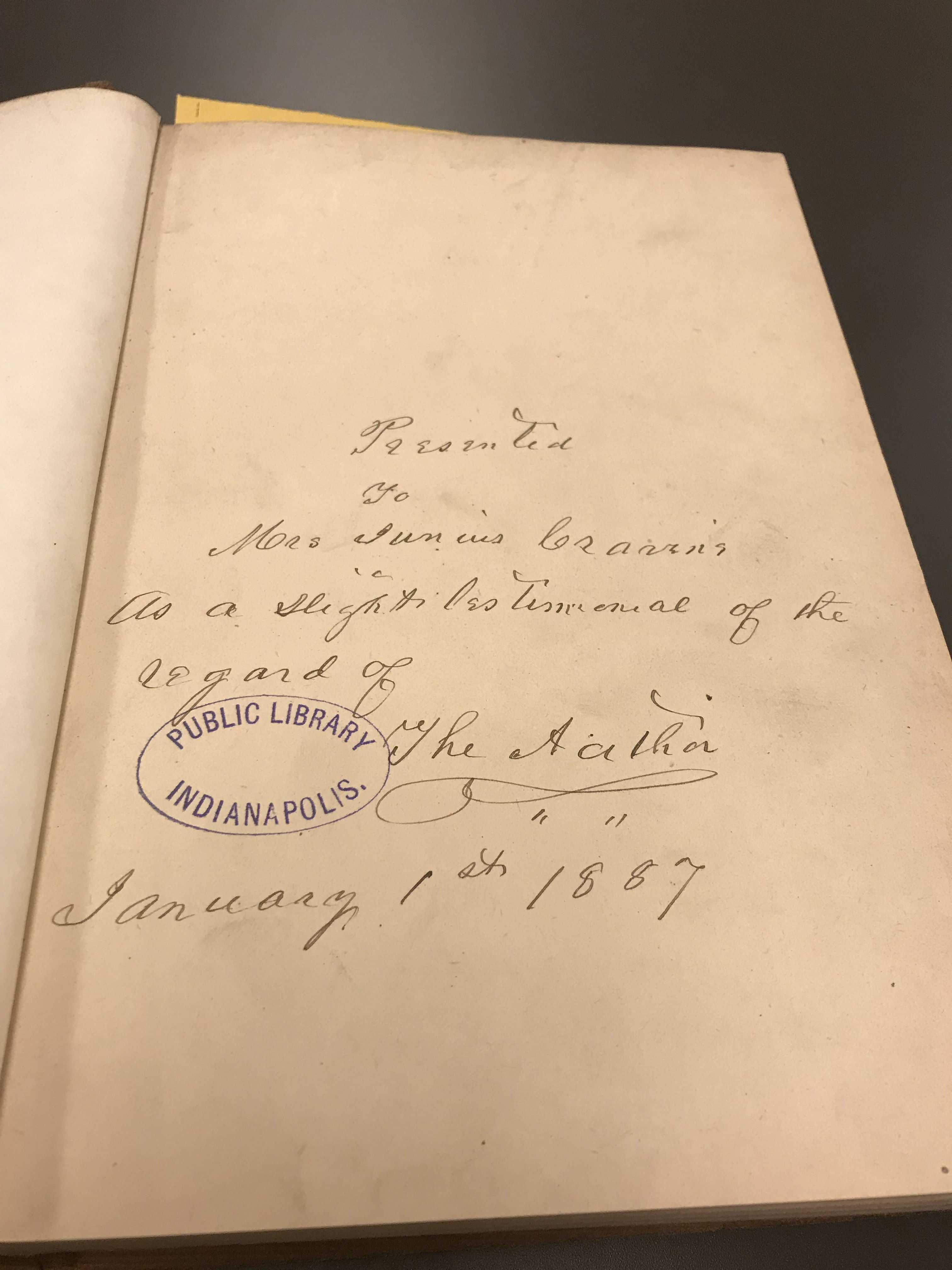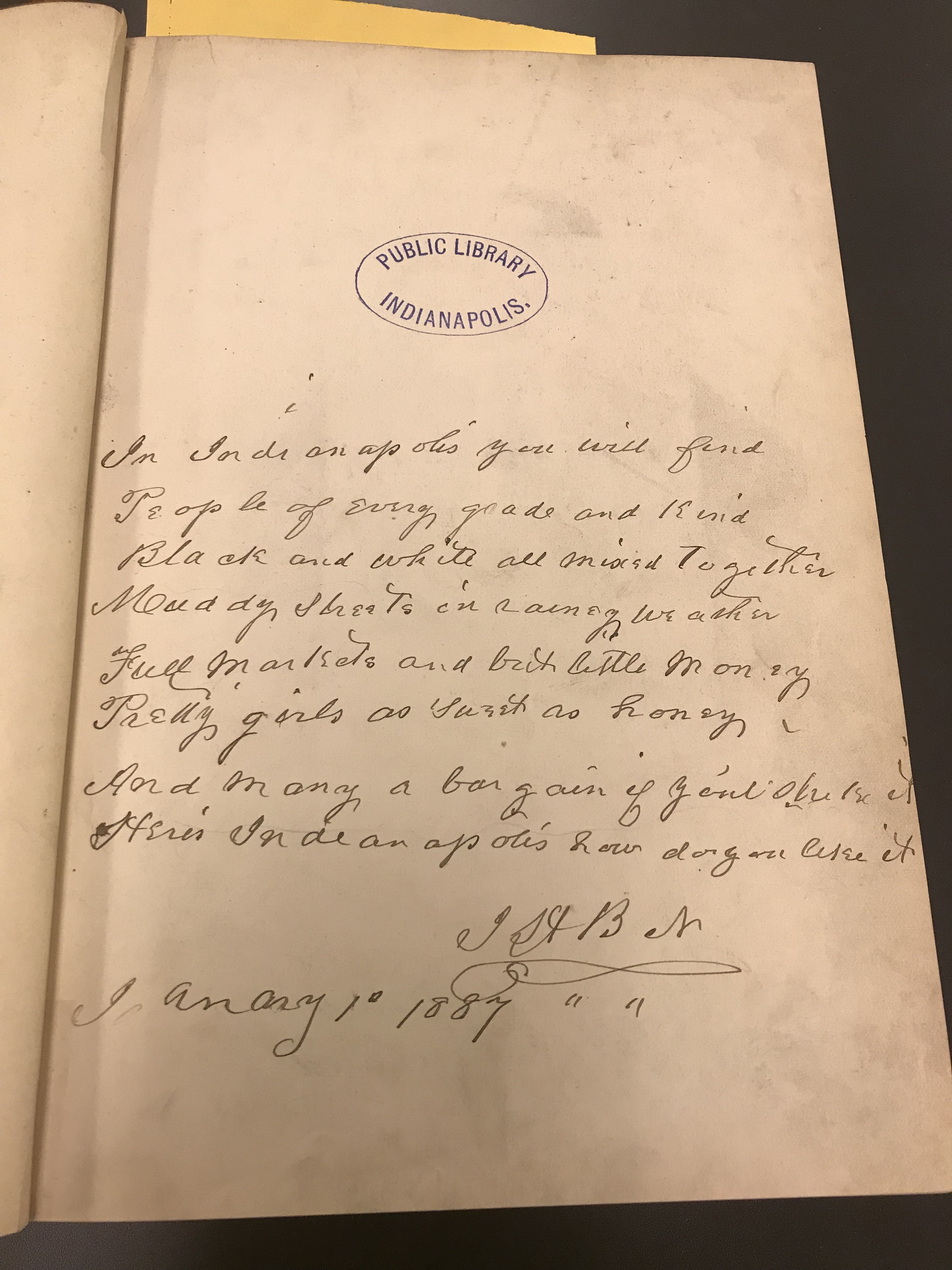In 1887, John H. B. Nowland wrote a special inscription to Emily Stewart Cravens in the book, “Sketches of Prominent Citizens of 1876, with a few of the pioneers of the city and county who have passed away.” Both Nowland and Cravens were pioneers from Indianapolis’s early days.
In the mid-to-late 19th century, Indianapolis was slow-growing and a small enough large town for the people who populated it to be friendly, neighborly and still very much of hard-working pioneer attitudes. The streets were dark and muddy; lined with taverns and cold houses lit by candle light. The 1830s saw the budding start of manufacturing and construction of factories and all was flavored with Gemütlichkeit from German immigrants who started arriving in the 1840s.
Nowland was born in Kentucky and came to Indianapolis late in the year 1820 with his pioneering parents, Matthias Nowland and Elizabeth Byrne. The first abode the family lived in was a cabin in the middle of Kentucky Avenue. Nowland, after spending some time in Washington D.C., returned to Indianapolis. He worked for various Indianapolis newspapers and wrote two history books about Indianapolis: “Early Reminiscences of Indianapolis” and the aforementioned “Sketches of Prominent Citizens of 1876.” He died in 1899.
Cravens, born in Maryland, was the daughter of William Stewart and Sophia Doud. Her father, William Stewart, a bookseller from Hagerstown, Maryland, arrived in Indianapolis in 1853 and set up a book shop on Washington Street with Silas T. Bowen. In 1871, Emily married Junius Cravens, a dentist of Indianapolis. She died in 1932.
How did the two meet? Maybe in her father’s book store or through a literary club, such as the Fortnightly Literary Club, to which Emily Stewart Cravens belonged. Whatever the connection, the lady obviously deserved more than just a simple signature from Mr. Nowland.
I have tried my best to transcribe the poem Mr. Nowland wrote to Mrs. Cravens in 1887. My note in parentheses, the poem follows:
In Indianapolis you will find
People of every grade and kind
Black and white all mixed together
Muddy sheets in rainy weather
Full markets and but little money
Pretty girls as sweet as honey
And many a bargain if you (word unknown) it
Here’s Indianapolis how do you like itJanuary 1st 1887
This blog post is by Angi Porter, Genealogy Division librarian.



Is it possible that the “you,” just before the missing word, is an error? If I understand it correctly, you’ve interpreted it as a contraction in the original text. But I wonder if the “y” is really a “z.” I can’t see any other samples of that letter here, so this is really just speculation.
I see a squiggle at the beginning of the word that could be a q, which would be followed by a u and it ends in ike, but qu_ike leads nowhere.
If there are other samples of his handwriting, there might be a way to figure out what the squiggle actually is. It’s an awful lot like a y, but q and z are also possible.
I mentioned this on Twitter– I think the unknown word is “strike.” So the line would be, “And many a bargain if you (or you’d?) strike it.” The word definitely starts with an “s,” ends with “ke,” and rhymes with “like,” and a bargain is something that is struck. I think he either forgot to cross the “t,” or didn’t cross it very clearly, and that’s what makes it hard to read.
That sounds really plausible.